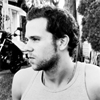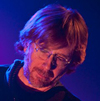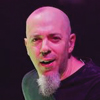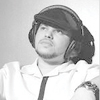David Schwartz
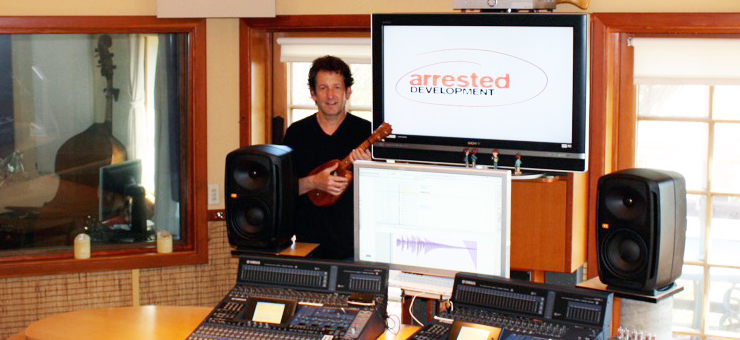
It is the goal of every TV composer to write one theme that is held in the public's memory and outlives the show it was written for, but for David Schwartz, just about every theme he writes manages to achieve this. Beverly Hills 90210, Deadwood, Arrested Development, and Northern Exposure are just a few of the timeless themes David's written that almost anyone could hum off the top of their heads. The keys to his success? Hard work, extreme talent, and the right tools. David has been using DrumCore and Discrete Drums products for a while now, so we called him up to ask how Sonoma Wire Works' software has helped his composing.
You've had a very long and impressive career doing sound and TV for film. How did you get into composing?
It's such a long story. Basically, a friend of mine was doing his own films. I had been a bass player, a producer, and had my own studio. I was not young when I started by any means! (laughs) He asked me to do this film. The film never went any place, but one of the few people that had seen it called me up a year and a half later and said, "Well, we tried everybody in town, but do you want to take shot at this?" It was called "North of the Future." I said, "Sure." During that year and a half I had really tried to get scoring gigs but did not get much response. Fifteen minutes after I said yes, someone came with a script. It was a script for Northern Exposure, first episode. What I wrote was pretty much the main title that aired on the show. That was my first job. I never expected them to ask me to score every episode, I had only written for this one little feature my friend had directed. I didn't really have much experience. It was extreme joy and extreme panic when I got that job. Up until that point I had been a very slow and very critical writer. What's great about TV though is that every week you have to move on. Every week you have to get an idea, finish it, and then it goes on the air. Northern Exposure was a fantastic school for scoring for me, because after the first week, we never used the same music twice. It could have been a new style of music every week. On the seventh episode that I did, I went in, and was told, "This episode is a Western, let's get 150 people and do an orchestra." That was the first time I scored for an orchestra. I had a friend who was an orchestrator help me and it turned out great. That's how it was every week and it was different music every week. I learned a lot of different styles and shaped my own along the way.
Your music has its own style. It's unmistakably you. Are you influenced by any songwriters?
It's hard to pick out my influences. I decided to become a musician after seeing The Beatles on Ed Sullivan, as a lot of people from my generation did. I went through the normal band thing, got into jazz and went to Berklee College of Music, played in orchestras, did a few country sessions and played in the Glenn Miller band, and at some point moved to LA and specialized in bass. I think you can have two kinds of careers: you can be known for doing one thing well, or you can be known to be able to do everything. I didn't start out to be that way, but that's what it's become. I think my music has a sense of humor. I come from a family that are all visual artists, and I think that's been an influence. I was a bass player and fascinated by rhythm, and that has played a part. When I write music, I write for that show, I try to imagine that show's personality.
All of your themes perfectly capture the show. How do you do that?
It's a real collaboration. They found the moose after I wrote the theme for Northern Exposure! (laughs) I didn't write to that moose, but that moose fits perfectly with my theme. One thing about that theme, I had one conversation with the creator and he said "Don't go with anything you think is Alaskan." I said, "Great because I couldn't find much," this was pre-internet, and he said "Let's go southern and fun." That was my direction, Cajun and latin. There was a lot of experimenting. I had the melody on the piano, but I was looking for the write voice. I had this idea for a chromatic harmonica, really fun and R & B like Stevie Wonder. I had a guy come in and I asked him where he was from and he said, "I'm from Alaska." It was just one of those moments.
Do you have a favorite amongst all the themes you've done?
I don't know, it depends on my mood. I got an emmy for the Deadwood theme. What's nice about the HBO themes is that they give you a minute and a half. It's something we as composers are fighting for, longer themes. It's hard to be taken seriously when your theme is seven seconds. The Arrested Development theme is only seventeen seconds long, but I'm very proud of that too. Mitch Hurwitz, the guy who created it, really loved it and kept wanting to add to it. It was hard for me to do, but we made it work. That was really happenstance. My wife and I went to Bora Bora and I found a Ukelele. A week later, after I came back, that instrument found it's way into the theme. To have an instrument, a sound, that everyone likes really helps. During Arrested Development, I started to write all the songs for the show, which was great fun.
Could you tell our users about your studio setup?
Sure. It's kind of hybrid, it's big enough to a lot of things in. For one show, I actually recorded a small string section. It's a great studio, kind of feels a bit Hawaiian in here. I had great studio builders and great advisors. It's gone through a few revisions though. In the beginning we had 24 track tape and a big English console. Now we have some Yamaha O2R's and do most of the mixing in Digital Performer. We have ProTools here as well, but I write in Digital Performer. I've got a couple of good tube mics and some Neve preamps. Lately I've been buying a lot of guitars and bass guitars. I've been wanting to get into vintage keyboards but that takes a lot of real estate. What I like about consoles, is that my assistant Jason can be on one, and I can be doing something else. It's a complex setup but it works well.
We've sent you some Discrete Drums stuff, has it helped you at all?
Oh absolutely! So much of my stuff now is groove based, and if I need a certain sound I can just pull one up. I might start with just a two or four bar thing from Discrete Drums and write to that, and then add to it. Discrete Drums is just fantastic for that. The sound you get is a real drummer on real drums. It's a great way to write and it's very fast. When I have the luxury of recording great drummers, I do, but it's very convenient to have these loops.
The other piece of software we sent was DrumCore, can you see that helping you as well?
I use that too! In particular, I've been using the Luis Conte stuff. Luis is a friend, so I get to use the real him sometimes. The DrumCore him really does sound like him! I really like the different kits in Drumcore. Many times when you're programming drums, you spend all this time, but you haven't gotten the right sound. With DrumCore, you can grab the right sound and work from there. Most of the time I use the audio part of Drumcore to build my track, but sometimes I might find parts too busy or something, so I switch to MIDI and make adjustments. It's very easy to change the tempo, and with the MIDI I can change the tempo quite a bit without it sounding strange. Sometimes I'll use the included MIDI grooves too. Even if you change them a lot, it's a great starting point, and some great feel are in those grooves.
Could you tell us about what you've been working on lately?
I've just finished three pilots for which I was working around the clock. They are all from great producers which is why I took on all three. The one that I am absolutely sure is picked up is "Running Wild" which is from Mitch Hurwitz, the creator of Arrested Development, and Will Arnett. It's a very funny show that will be on FOX in the fall. The second one is called "Chaos" and is a CIA drama. The music is very upbeat and funky which is fun. A lot of the pilot takes place in a terrorist training camp in northern Sudan, so we got to use a lot of those kinds of sounds which was great fun. I love the challenge of doing a lot and doing many different styles.
Where can I direct users to hear more of your work?
My website is the best choice davidschwartzmusic.com.

